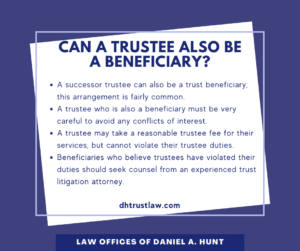A contract’s fundamental elements are its provisions. To help you understand a contract’s expectations and limitations, provisions define its terms, conditions, and clauses. The terms of a contract also define your legal rights and obligations because it is a legally binding document.
Comprehending the terms and conditions of a contract enables you to safeguard your business, rights, and interests in a written agreement before embarking on a new venture.
A Contract Provision: What Is It?
A clause in a contract, legal document, or statute is known as a contract provision. Contractual provisions frequently call for the completion of an action by a deadline or within a given time frame. The purpose of contract provisions is to safeguard one or both parties’ interests.
Provision of a Contract: The Operation of a Contract Clause:
Loan documents, contract agreements, and national laws all contain provisions about contracts. Additionally, the fine print that comes with some stock purchases contains them. One sort of contract clause found in some company charters, for instance, prohibits the board of directors from paying a corporate raider a premium to withdraw a hostile takeover offer. This is known as an anti-greenmail provision.
A loan loss provision is a kind of contract clause found in loan documents that describes an amount set aside to cover missed loan payments or uncollected debt. This clause serves as insurance against several potential loan-loss-related issues.
Understanding Contract Provisions Is Crucial
The requirements of a contract are defined by its provisions. A contract for the purchase of goods or services, for instance, might include clauses about delivery, payment, and refunds if the predetermined conditions are not satisfied.
Knowing the terms that are most frequently used in contracts gives you the ability to evaluate any agreement you intend to enter into before you sign it.
Furthermore, having a thorough understanding of the terms of the contract is the best way to guarantee that your interests are safeguarded and that the terms are implemented correctly.
An Illustration of a Contract Clause
A bond’s call provision is among the most common applications of a contract clause. The term “call provision” on a bond designates a deadline beyond which the bond may be recalled and retired by the company. The bondholder has the option to surrender it in exchange for payment of the face value (or face value plus a premium).
For instance, it is possible to call a 12-year bond issue after five years. There is hard-call protection during that initial five-year term. Interest payments to investors are assured through at least the first call date. A broker will usually give both the yield to maturity and the yield to call when an investor purchases a bond. These two yields show how profitable an investment the bond can be.
A soft call provision on a bond will take effect following the expiration of the hard call provision period. When a bond is called before it matures, the issuer usually pays a premium to face value for soft call protection. When the call date is reached, for instance, the issuer may have to pay additional 3%, 2%, and 1% premiums for calling the bonds for the ensuing year, the year after, and for calling the bonds for more than two years after the hard call expires.
Which Typical Terms Are Included in a Contract?
Although every contract will be different based on the specifics of what it is for and the parties involved, almost all will contain some or all of the following fundamental clauses:
- Terms and timing of payments;
- Obligations between the parties;
- Promises and representations;
- Liability concerns, disagreements, and resolutions;
- Discretion;
- Cancellation of the agreement
Particular Points to Remember
Many laws have sunset clauses, which, absent legislative action, automatically repeal them on a given date. A sunset provision allows for the complete repeal of the law, or just certain parts of it, after a predetermined date.
Laws with sunset clauses shield the general public from the unintended consequences of changes in power. The USA Patriot Act is one example of how government agencies frequently write them during particular power periods. The USA Freedom Act allows for the extension of these provisions, but they may be no longer in the public’s best interest. In the business world, sunset clauses set a deadline for claimants to submit their claims, after which they forfeit their right to do so.
What Do a Contract’s Provisions Include?
To help you understand a contract’s expectations and limitations, provisions define its terms, conditions, and clauses. The terms of a contract also define your legal rights and obligations because it is a legally binding document.
What Distinguishes a Clause from a Contract Provision?
A contract’s provision lays out an obligation or condition. In a contract, a clause is a section or subsection that may have one or more provisions.
Questions and Answers TO Provision of a Contract:
Is provision a resource or a liability?
Provisions are money that a business sets aside to cover potential losses down the road. Stated differently, a provision is an uncertain-term and uncertain-amount liability. Provisions appear in the liabilities section of a company’s balance sheet.
What distinguishes provisions from accrued liabilities?
Though not yet paid, all incurred costs have already occurred. On the other hand, provisions are set aside for likely but unproven future obligations. They function as a rainy-day fund because their assumptions about future costs are well-founded.
Sunrise and Sunset Provisions: What Are They?
A sunset provision automatically permits the gradual withdrawal of a contract, or portions thereof, at a later date.
In summary OF Provision of a Contract:
A contract provision is a section of a contract that outlines the parties’ particular responsibilities, rights, and obligations. A wide range of contracts, such as leases, purchase agreements, and employment contracts, contain provisions about contracts. Before signing a contract, it’s critical to carefully review all of the terms to ensure that you are aware of your rights and obligations. Before signing the contract, you should get legal counsel if you have any questions concerning a specific clause.



